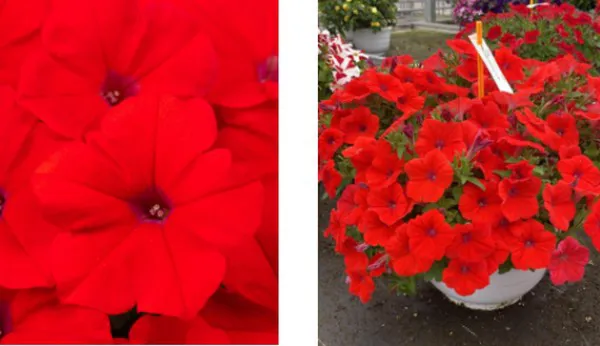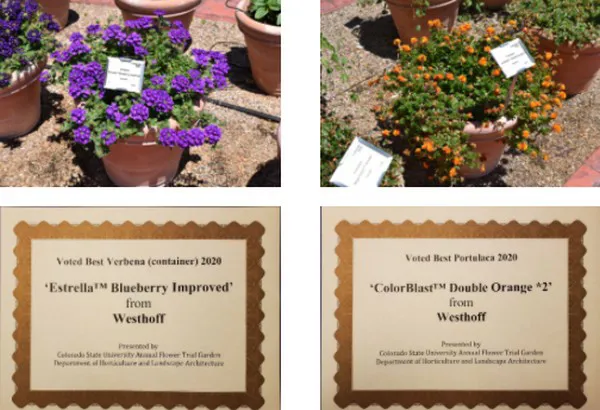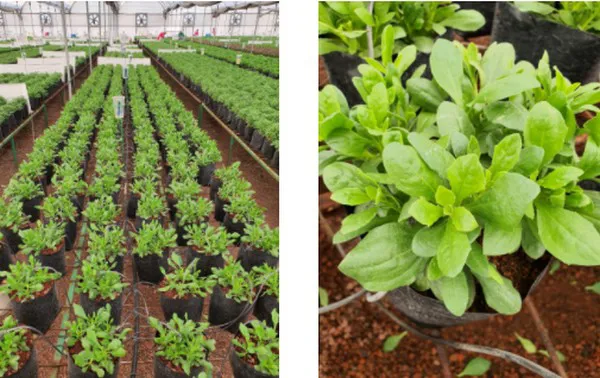With the bulk of ordering season behind them, and as they prepare for the coming spring season, Westhoff is eager to share some of the developments. However, before showing what is happening, they look back at last year and consider the coming season.
What a year
"It was a hard year, fraught with challenges and difficulties," says Bart Hayes, of Westhoff. "We all had to rapidly adapt to a radically different way to work and learn, savored great professional success, and endured personal losses that make those victories bitter sweet."
"In my limited travel this year, I was, again, impressed and humbled by the passion and resilience of the growers that endured the roller coaster of emotions that this growing season presented. But it quickly became apparent that even though the 2020 growing season presented new and frightening changes, it also proved to anyone that was watching that the products we all work so long and hard to produce are not only enjoyed and consumed by the gardening public, but were deemed "essential" in many places."
"In fact, growers and retailer increased access, developed new ways to sell plants, and many of the customers that we serve left their homes, some at risk to their own health to buy our products in record numbers during one of the most challenging economic situations our world has ever faced. I has renewed my belief that our industry is strong, resilient, and robust."
And when looking ahead, he is optismistig. "I am confident that the major challenge/opportunity for the coming year will not be whether we will be able to continue, but whether we can grow enough material for the new and re-energized customers that are anxiously awaiting our products."

Westhoff brings Orange petunias back to the USA
After years of paperwork and navigating the mysteries of the USDA, Westhoff has finally gotten their application for non-regulated status approved by the USDA. What does this mean? "We can sell Orange Petunias again! And when I say "we" I mean everyone. Since the A1DFR gene in Petunia has been deemed a non-threat to US agriculture, it can be freely imported, regardless of the breeder responsible for developing the variety. A real "a rising tide lift all boats" kind of moment for the industry."
"Canada has been able to sell these varieties for the past few years now as they were quicker to de-regulate them, so we were able to keep some of the A1DFR varieties available. So we will be working with our licensees to increase the mother stock to be able to supply not only our classic varieties, but also the new breeding we plan to introduce for the 2022 growing season, one of which is pictured above. Words and photos rarely do these varieties due service, but the two above do a fair job of showing the color and the extremely floriferous nature of these plants. Expect to see these glowing in trials across North America."
He knows that transgenic modification can be a touchy subject for some, but according to Bart, one needs to keep in mind a few factors:
- It is a gene from corn (maize) so most of us literally eat this gene on a daily basis.
- There have been no additional genetic modifications since the original one back in the late 1980's and all subsequent varieties that are on the market, or will be allowed under this change, are traditionally-bred progeny of this great, great, great, great grandparent variety.
- This change is not opening any flood-gates. The change only affects the plants that contain this one gene, from this one event. Any future varieties that would be developed would have to be individually taken through the same two and a half year review process and would each be judged on their individual merits.
- Petunia varieties with this gene have already been on the market for decades with no ill effect.
"I would be remiss if I didn't give the overwhelmingly large portion of credit to our two breeders that did the work on this project: Manfred Mehring-Lemper and Diro Terefe Ayana. Great work guys! Also the team at the USDA were amazing. The stereo-type is that the US Federal government is this big, hulking machine, but honestly, they were a delight to work with. They were extremely helpful in helping navigate the process and helping make this project a reality." They put out a press release, but feel free to contact Hayes if you wish to discuss further.

Another award winning year in trials
"I know I talk a lot about trials, probably because I am a former university trials manager, but we did have a good year in the trials this year, with several varieties out performing our competitors." Two such varieties from the Colorado State University trials at Fort Collins were: Verbena Estrella Blueberry Improved and Portulaca Colorblast Double Orange. Both varieties won best in their class.
"The Colorblast series from Westhoff is awesome, specifically the doubles, and we continue to bring new ones to the market (2022 will be no exception, hint, hint.)"
"And the Estrella series of Verbena is sometimes overshadowed by the Petunias and Calibrachoa that we are most famous for, but as anyone who has grown them can attest these plants are something special. With great habits, high mildew tolerance, heavy flowering and the unique Westhoff Flowering Progression trait, if you haven't tried the Estrellas recently, you really should bring in a few and trial them."

A Quick look at Osteospermum Gelato (behind the scenes)
One last thing, Hayes wants to share are some photos of the Osteospermum Gelato stock that Aart at Vivero International shared with him. "Plants are robust and healthy, throwing great looking URCs. I know if is getting a bit late, but they still have good availability at the farm and they are super easy for 4" pots up to 1 gallon pots." Click here for a cultural guide that he put together or contact him for the pdf version."
The new Westhoff 2020/2021 Catalogs are here! The first round of catalogs has gone out, but if you missed yours or if you need more, please click here to receive ASAP.
For more information: Westhoff
Westhoff
Email: info@westflowers.de
www.westflowers.de
